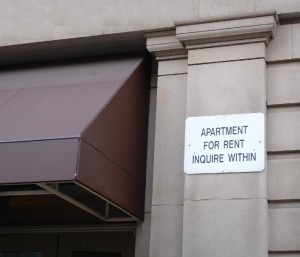Rental Income and Taxation
Is Rental Income Fully Taxable?
 Owning real estate can help you offset your tax bill. Things like property taxes, mortgage interest, and PMI are all deductible. If you choose to rent out your property for the purpose of augmenting your income, it is important that you familiarize yourself with basic information related to it so that you will be able to maximize your earnings by maximizing your tax deductions. Let Practical Taxes explain what you need to know about rental income and taxes.
Owning real estate can help you offset your tax bill. Things like property taxes, mortgage interest, and PMI are all deductible. If you choose to rent out your property for the purpose of augmenting your income, it is important that you familiarize yourself with basic information related to it so that you will be able to maximize your earnings by maximizing your tax deductions. Let Practical Taxes explain what you need to know about rental income and taxes.
What is Rental Income?
Rental income refers to any payment you receive for the use of your property. Like other types of income, it has to be reported in the same year when you received it, even if it is supposed to be payment for the following year. For example, you enter into a contract where your property will have a 5-year lease. If your lessee pays rent for both 2016 and 2017 within the year 2016, you have to report both payments as income for the year 2016.
Likewise, if you make use of security deposits for final rent payment or to cover damages caused by the tenant, this should also be included as part of your income in the year when you received it (typically the year when your lease contract started). Don’t include security deposits, though, if it is to be literally used as a “security deposit”, meaning that you will return it to your lessee at the end of the lease.
In case of lease cancellation, the payment you receive will still be considered as rent, thus, it will also have to be reported as part of your rental income for that year.
Rental income and expenses are reported through Schedule E of IRS Form 1040.
What Expenses can be Deducted from Rental Income?
Because rental income is considered as income, the IRS will let you deduct expenses from rental income so that you will not have to pay taxes for the entire amount that is paid to you. Generally speaking, any cost you incur from operating, managing and maintaining your rental property can be considered as rental expense, and therefore deductible from your rental income. These expenses are those that are necessary to keep your property in optimal operating condition. Rental expenses include (but may not be limited to) the following:
- Repair costs such as fixing faulty plumbing; replacing broken doors, windows or cabinets; repairing damaged appliances; or repainting chipped or cracked paint.
- Insurance fees for fire, flood, liability and mortgage
- Maintenance fees such as utility expenses, cost of supplies, cleaning expenses, wages paid to maintenance personnel, salaries paid to managers or supervisors running the rental property, homeowner association dues or condo fees, pest control fees, and garbage disposal fees.
- Tax-related fees such as legal fees paid for tax preparation, mortgage interest payments, and local property taxes.
- Advertising and promotional expenses.
- Travel expenses you incur when the purpose of your travel is to check on your property or do other tasks related to renting your property such as collect rent.
- Losses from natural disasters (fire, flood, hurricane, Godzilla attack) or theft.
What Expenses cannot be Deducted from Rental Income?
At some point, you might consider upgrading or modernizing your property for better appeal and resale value. Expenses that are incurred for such purposes are not necessary to continue operating your rental property and are therefore not deductible from your rental income. Examples are structure additions (such as a new floor, a new room, any extension, a swimming pool) and constructions that can extend the usefulness of your property (such as adding a new roof or installing insulation).
To recover from expenditures like these, you may report the expenses as depreciation deductions through IRS Form 4562. Unlike expenses which you can deduct in full, depreciation cost has to be spread out equally over the number of years it is expected to be useful.
As for rental-related losses incurred, special rules referred to as Passive Activity Rules (PAL) will apply. In a nutshell, these rules restrict you from using passive income losses (such as those from your rental activities) to offset other taxable income that you have.
Practical Taxes Knows Rental Taxation Laws
If you are considering buying a house, condo, or apartment building to be used as a rental, you need to know some of these rules. If you have been considering it, but you haven’t taken the plunge, don’t let this dissuade you! Owning a rental can be a great source of revenue.
The best part of collecting rental income is that you just need to keep track of the numbers. Then let Practical Taxes, your accountant in Billings, MT, handle the rest. We have trained accountants that fully understand the rental income tax laws so that you don’t have to learn them.

Nice article.
Awesome article thanks for sharing.